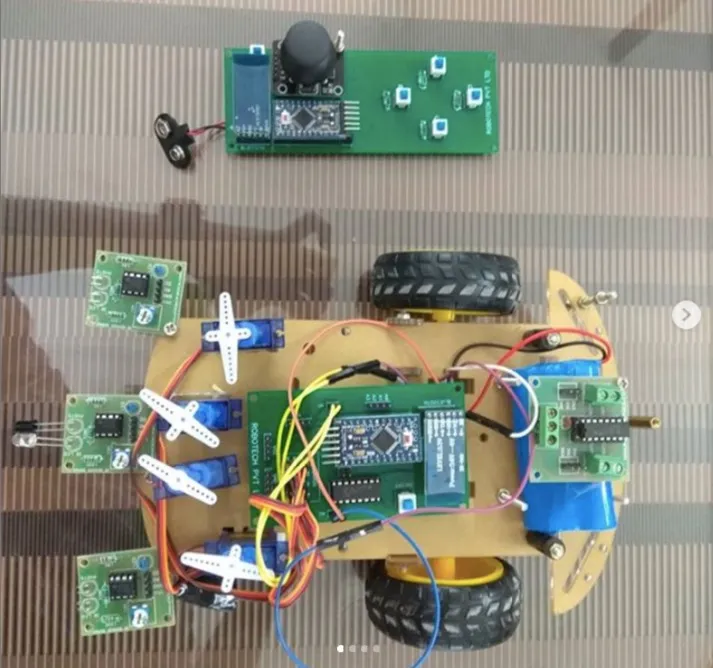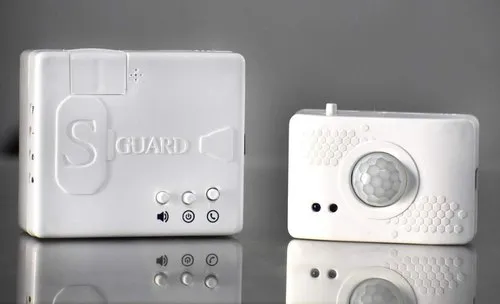[Startup Bharat] Guwahati-based OLatus is using ecommerce to create a market for electronics components across India
Bootstrapped with Rs 2 lakh, Guwahati-based startup OLatus, which supplies electrical and robotic parts to dealers in Delhi, Mumbai, Ahmedabad, and Bengaluru, recorded Rs 1.2 crore in revenue in FY 2017-18.
Parash P Borthakur and Nilpal Rabha, two electronics engineering students from Guwahati’s Royal School of Engineering and Technology, faced a pain point in the final year of their graduation. They had to work on a project, but couldn’t source most of the electrical components they needed to build the project.
“Electrical and robotic components were either not readily available or were too expensive for us students,” Parash says.
Determined to solve this problem themselves, Parash and Nilpal started an electrical ecommerce platform - OLatus in September 2014.
Today, besides being one of the first registered electronics company in Northeast India, OLatus has a research team developing new technologies and products at affordable prices. They also have a team deployed to deliver workshops in school and colleges, and supply DIY (Do it Yourself) kits to Government of Arunachal Pradesh - Directorate of Science and Technology.

Parash Pratim Borthakur CEO and Cofounder; Nilotpal Rabha CTO and Cofounder; Palash J Mahanta COO (L-R)
Today, the startup builds industrial custom devices and smart home automation devices. They have also built animal wheel carts for a few NGOs (Non Governmental Organisations).
"We are also working on building a robotic wheelchair for children and differently-abled people," says Parash.
Bootstrapped with Rs 2 lakh from the personal savings of the 29-year-old founders, the Guwahati-based startup recorded revenue worth Rs 1.2 crore in FY 2017-18.
“Our philosophy is to bring Northeast India in the mainframe silicon trade route of the world, with the help of technology,” says Parash.
Starting up early
Initially, when the duo set up their ecommerce business, they would source components from wholesalers and distributors in Delhi or Mumbai. While this allowed them to offer relatively competitive pricing in Guwahati, internet penetration wasn’t deep enough for the masses to adopt ecommerce.
While continuing with their ecommerce business, the duo entered the education system to build their brand, by publishing a series of handbooks for college students registered under the Guwahati University.
“We basically solved previous years’ question papers and sold around 25,000 copies,” Parash says. However, duplication and photocopies soon made it to the market, and the demand reduced.
At that same time, the Co-founders started conducting workshops to help engineering students with their projects. They conducted three workshops at the end of 2015, and trained more than 200 students from five colleges under Guwahati University.
However, between 2015 and 2017, they went on to do their Masters in Technology from Guwahati University. While their focus shifted to education, they kept their ecommerce business running.

Obstacle or Edge-avoider Robot developed by OLatus
Second innings
“After completing our MTech in June 2017, we got back to focusing on our business and take it to the next level,” Parash says.
Instead of involving middlemen like the distributors in Mumbai and Delhi, OLatus started directly importing components from China, after receiving the Import Export Code certificate in 2017. At present, OLatus imports computational boards, motors for robots, and connecting wires from China.
OLatus also tied up with AD Electronics in Kolkata for manufacturing circuits and sensor boards. However, the designing is done by OLatus’ in-house team.
“We also manufacture DIY kits for students above Class 6, till engineering level. These mostly involve technical projects around electronics and robotics,” Parash adds.
Currently a team of 13 members, OLatus started receiving industry projects by the end of 2017.
“Starting with sourcing components from Delhi and Mumbai, we have completed the full circle, and now supply to distributors in Delhi, Mumbai, Ahmedabad, and Bengaluru,” says Parash.
OLatus is also certified under the Department of Industrial Policy and Promotion, which is now called Department for Promotion of Industry and Internal Trade (DPIIT).
B2B2C model
Once connected by an industrial player, OLatus conducts research, and then delivers customised products.
Further, it also supplies robotics and electronics parts pan-India and conducts workshops and training in schools and colleges.
The startup has two engineers who conduct two-day workshops in schools and seven-day workshops in colleges and universities. They charge Rs 1,500 for a group of three students, and the DIY kits cost Rs 2,000.
“We recently received a request from a Mumbai-based college to conduct a workshop. We couldn’t deliver it due to time-constraint, but are planning to start training students pan-India by the end of next year,” Parash says.
So far, OLatus has completed more than 500 projects and trained more than 1,000 students.
“We have sold more than 1,00,000 units of products,” says Parash. The cost or fee varies from project to project.
Last year, the company manufactured its first product - OLatus SGuard - the God of Security, an anti-theft device. According to the company, priced at around Rs 5,000, it has sold more than 350 pieces so far.
The customised board for industries depend on the customisation required by the client. Research work starts from Rs 5,000.
According to the founders, OLatus gets most of its orders from Guwahati, Bihar, and Shillong at present.

The OLatus SGuard
Market space and future plans
According to a report by Globe Newswire, the global industrial robotics market was valued at $33.16 billion in 2017, and is expected to generate revenues worth $62.19 billion by the end of 2024. The market is predicted to grow at a CAGR of around 9.40 percent between 2018 and 2024.
Companies like Mumbai-based Micron and Bengaluru-based Unisen Electronics are working in the same sector.
However, what sets OLatus apart is its “competitive pricing and innovative consumer products,” says Parash.
OLatus will be participating in the eXcellerate North East Summit that is organised by Indian Importers Chambers of Commerce and Industry (IICCI) this December.
“The business ecosystem in the Northeastern states is developing rapidly, and B2B events such as these enable networking with the right set of people - investors, potential co-founders, and others who can help us boost the business,” Parash says.
With plans to expand its business in the PCB (Printed Circuit Board) industry, lithium industry, and exporting to global markets, OLatus is looking to raise funds in the next one year.
“We are also planning to buy machines and start manufacturing more products ourselves - including lithium-ion batteries,” says Parash.
(Edited by Megha Reddy)


![[Startup Bharat] Guwahati-based OLatus is using ecommerce to create a market for electronics components across India](https://images.yourstory.com/cs/2/3fb20ae0-2dc9-11e9-af58-c17e6cc3d915/Collage-start-up-Bharat1568117097198.png?mode=crop&crop=faces&ar=2%3A1&format=auto&w=1920&q=75)
![[Startup Bharat] How Kochi-based NAVA Design and Innovation’s Sapper is tapping AI to automate ...](https://images.yourstory.com/cs/2/3fb20ae0-2dc9-11e9-af58-c17e6cc3d915/nava-design1556686731169.jpg?fm=png&auto=format&h=100&w=100&crop=entropy&fit=crop)
![[Startup Bharat] Mohali-based Hotshelf is making profits by giving life to medical equipment de...](https://images.yourstory.com/cs/2/70651a30-2d6d-11e9-aa97-9329348d4c3e/Hotshelf-1566294785641.png?fm=png&auto=format&h=100&w=100&crop=entropy&fit=crop)
![[Startup Bharat] Making Bharat swachh and pretty: Jaipur-based Ecowrap is upcycling waste, gene...](https://images.yourstory.com/cs/2/3fb20ae0-2dc9-11e9-af58-c17e6cc3d915/ecowrap1553704496185.png?fm=png&auto=format&h=100&w=100&crop=entropy&fit=crop)
![[Startup Bharat] How consumption in Tier II and III India is moving to ecommerce and online foo...](https://images.yourstory.com/cs/2/a9efa9c0-2dd9-11e9-adc5-2d913c55075e/vernacular-languages-advertisement115651874462301566400528809.png?fm=png&auto=format&h=100&w=100&crop=entropy&fit=crop)




